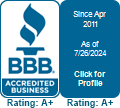501c3 FAQs
1. Which organizations qualify for 501c3 status?
Nonprofit organizations which are set up exclusively for charitable, educational, religious or scientific purposes.
2. Can I set up a 501c3 with the purpose of supporting my relative who is suffering from a disease? Would this organization qualify for 501c3 status?
No. Unfortunately, 501c3 organizations cannot be set up to benefit one specific individual.
3. If I own other businesses, such as an LLC or corporation, may I be the founder of a nonprofit organization?
Yes. However, you should make sure that there are no conflicts of interest.
4. Can I sit on the board of more than one nonprofit organization?
Yes, you can serve on multiple boards.
5. Can I operate my charitable organization outside the US?
Yes, you can operate your organization in foreign countries. You must comply with IRS rules and guidelines when starting and operating your organization.
6. Can my organization receive contributions that are tax deductible before my 501c3 status is approved by the IRS?
Yes, you may. The effective date of your 501c3 status will be backdated to the incorporation date if you are applying within 27 months since you got incorporated. If you are applying past 27 months, then the effective date of the exemption will generally be the date when the application is submitted (some exceptions apply).
7. Can my 501c3 organization have a positive cash balance at year end?
Yes, it can.
8. What tax forms are 501c3 organizations required to file annually?
In order to maintain 501c3 tax exempt status, public charities must file one of the following:
a. Form 990 (Return of Organization Exempt from Income Tax) if the gross receipts exceed $200,000 or total assets are greater than $500,000;
b. Form 990-EZ (Short Form of Organization Exempt from Income Tax) if the gross receipts are greater than $50,000 and less than $200,000 and total assets are less than $500,000;
c. Form 990-N (Electronic Notice or e-Postcard) when gross receipts are less than $50,000.
These parameters and filing forms may change periodically.
9. What is the deadline for filing the form 990 (annual information return)?
The forms 990, 990-EZ and 990-N are required to be filed by the 15th day of the 5th month after the organization’s tax year end. You may request an extension for an additional 3 months. Note – Form 990-N filers are not eligible for extensions.
10. Will I be penalized for not filing my 990 or 990-EZ on time?
Yes, when the form 990 or 990-EZ is not filed on time, your organization may be penalized. Your organization may also be penalized if it files an incomplete or inaccurate form 990/990-EZ.
11. What does an organization gain by obtaining 501c3 status?
501c3 organizations are eligible to receive tax deductible donations and are eligible to apply for government and private grants. Also, 501c3 organizations are exempt from paying federal income taxes.
12. How is a public charity different from a private foundation?
The main difference between a public charity and a private foundation is the source of funding. Public charities receive their funds from a wide number of contributors such as the general public, corporations and grants. Private foundations on the other hand tend to get their funds from only a few donors.
13. I have a small youth program. Is bookkeeping required for my organization?
Yes, you should keep records for your organization. Your bookkeeping records will show where your donations come from and what you are spending the funds on. Good bookkeeping records will ensure that you have the required information to prepare your annual form 990. Good bookkeeping records can be used by management to show the success of the organization’s programs and activities.
14. Which charitable organizations are considered to be educational?
The following types of organizations are considered educational:
- Schools which have a regular scheduled, adopted curriculum, faculty and students. This includes grade schools (primary and secondary); colleges; and universities.
- Professional and trade schools.
- Correspondence or instructional courses through the internet, television or radio;
- Day care and child care centers;
- Youth sports organizations.







